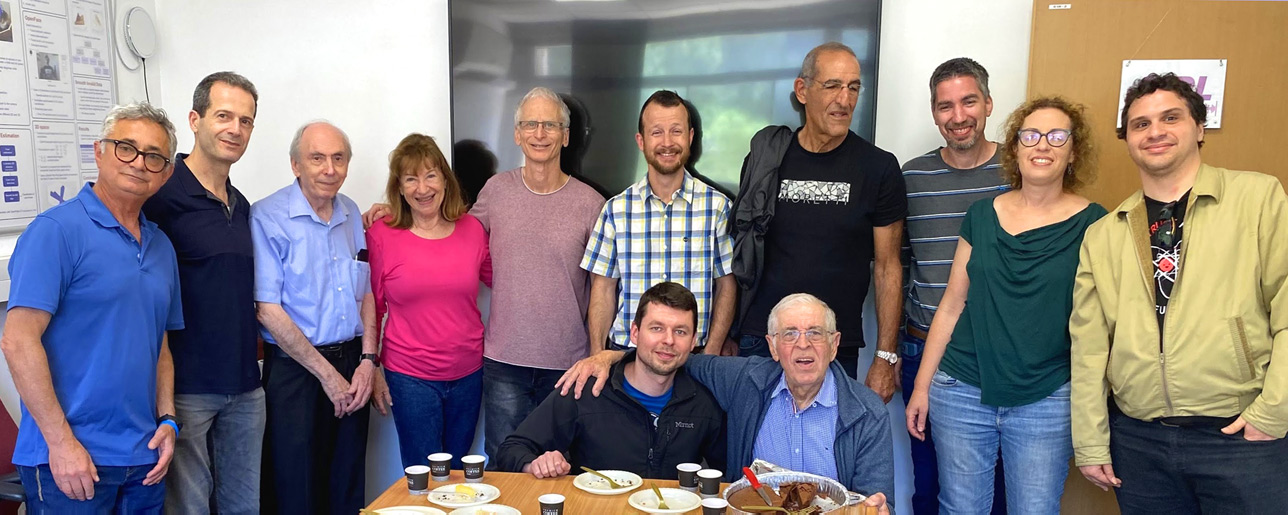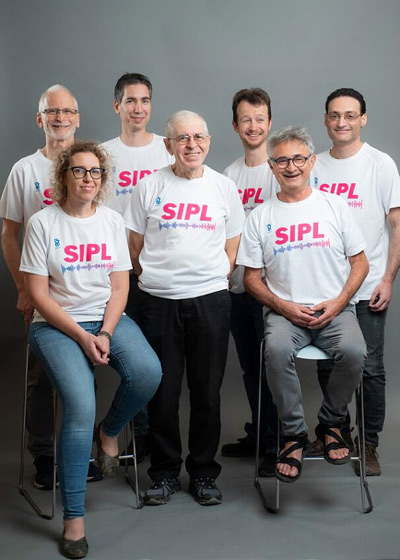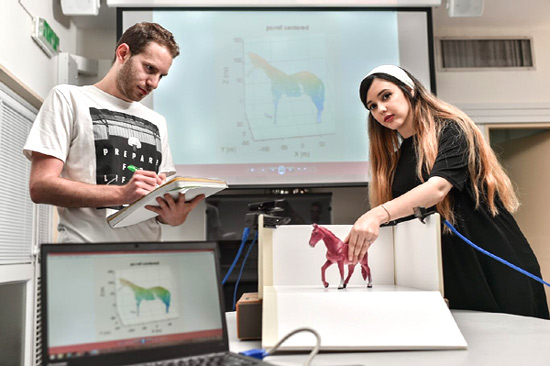
 About SIPL
About SIPLThe Signal and Image Processing Lab [SIPL] is a research and teaching laboratory in the Faculty of Electrical and Computer Engineering. It is active in the development and implementation of algorithms in the field of digital signal processing for a wide range of topics and applications.

The laboratory specializes in the processing and analysis of multimedia signals – speech, audio, image, and video; as well as IR, hyperspectral, point cloud data, and physiological signals, such as EEG, ECG, and PPG. The developed algorithms use both trasitional signal and image processing techniques, as well as cutting-edge tools from computer vision, machine learning, deep learning, and more.
 Research activities at SIPL are conducted by our faculty members and their graduate students, as can be viewed at the individual homepages of those members. Undergraduate student instruction is primarily carried out by the lab technical staff, graduate students, and industry adjuncts. It consists of three experiment lab courses and senior undergraduate student projects. Our current lab courses focus on speech and physiological signal processing, image processing, and deep learning. Undergraduate student projects are often inspired by the graduate student research and by the evolving needs of Israel’s hi-tech industry. Many of these projects are conducted in collaboration with industry partners and receive industry funding.
Research activities at SIPL are conducted by our faculty members and their graduate students, as can be viewed at the individual homepages of those members. Undergraduate student instruction is primarily carried out by the lab technical staff, graduate students, and industry adjuncts. It consists of three experiment lab courses and senior undergraduate student projects. Our current lab courses focus on speech and physiological signal processing, image processing, and deep learning. Undergraduate student projects are often inspired by the graduate student research and by the evolving needs of Israel’s hi-tech industry. Many of these projects are conducted in collaboration with industry partners and receive industry funding.
Each year, about 50 projects are carried out in the lab. Each project is typically performed by a pair of students. Students who achieve novel results are encouraged to submit their findings to professional conferences. Each year, several such projects are presented at leading conferences. In addition, SIPL regularly participates in signal processing competitions and Show and Tell demonstrations, conducted at international conferences, consistently winning awards. Our collaboration with industry extends beyond student projects and funded research. The lab is also involved in industry-academia consortia Israel, supported by the Israeli Innovation Authority.
Since its establishment in 1975, SIPL had produced graduates who have been integrated into key positions in the development departments of leading Israeli and international hi-tech companies, contributing to the flourishing of Israel’s science-based industry. Through our ongoing research and projects, SIPL maintains its position at the forefront of advancements in the field of signal and image processing.
 The Signal and Image processing Lab (SIPL) was established in 1975 in the Department of Electrical Engineering of the Technion. It has been active since in research and teaching in a wide range of signal processing topics. Particularly, in the development and implementation of algorithms for processing speech, audio, image, video, physiological signals, point clouds, and more, widely using machine learning, and particularly deep learning. Many dozens of graduate students have since completed their research in the lab.
The Signal and Image processing Lab (SIPL) was established in 1975 in the Department of Electrical Engineering of the Technion. It has been active since in research and teaching in a wide range of signal processing topics. Particularly, in the development and implementation of algorithms for processing speech, audio, image, video, physiological signals, point clouds, and more, widely using machine learning, and particularly deep learning. Many dozens of graduate students have since completed their research in the lab.
In addition, over 100 undergraduate senior year students perform experiments and projects in the lab each year, often collaborating with industry partners. SIPL has been involved through the years in many aspects and applications of signal processing and has provided its graduates valuable opportunities to gain experience in the field through projects and research. Beyond its educational role, the research and projects carried out in the lab have directly contributed to the flourishing hi-tech industry in Israel. The activities of the lab have often been driven by the evolving needs of the science-based industry, and we believe that its impact is extended beyond the local scene. Through our ongoing research and projects, SIPL has maintained its position at the forefront of advancements in the field.
At SIPL, we are dedicated to advancing the frontiers of signal and image processing through innovative research and education, with a particular emphasis on nurturing the next generation of signal processing experts. Our goal is to develop cutting-edge algorithms and techniques that address real-world challenges, foster a stimulating learning environment for undergraduate students, collaborate with industry to create practical solutions, and contribute to the broader field of signal processing by sharing our research findings and expertise. We aim to equip students with the knowledge, skills, and practical experience they need to succeed in this rapidly evolving field.